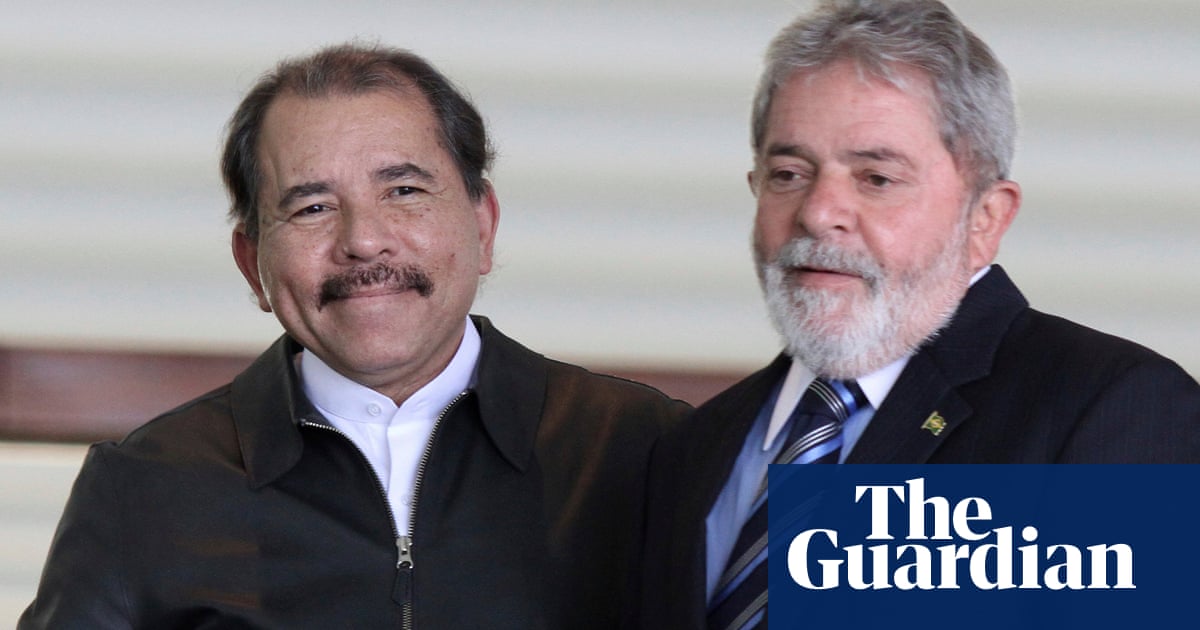
Brazil and Nicaragua have expelled each other’s ambassadors in a tit-for-tat diplomatic row, as Brazil’s president, Luiz Inácio Lula da Silva, appears to recalibrate his approach to authoritarian leftist rulers who were once seen as allies.
The dual expulsions this week came amid growing tensions between Lula and another supposedly progressive leader, Venezuela’s Nicolás Maduro, whose claim of re-election the Brazilian president has yet to acknowledge. Lula and his counterparts in Colombia and Mexico have called on Maduro to release voting tallies from all polling stations to support his win.
On Thursday, Brazil announced the expulsion of the Nicaraguan ambassador as an “application of the principle of reciprocity” following Nicaragua’s decision to expel the Brazilian ambassador two weeks ago.
Ambassador Breno de Souza da Costa is reported to have refused, under the direction of the Brazilian government, to participate in an event celebrating the 45th anniversary of the Sandinista Revolution, when leftwing revolutionaries overthrew the then dictator Anastasio Somoza.
Nicaragua’s president, Daniel Ortega, played a key role in that revolution, but in recent years has overseen an increasingly vicious crackdown on dissent, imprisoning dozens of opposition leaders, including former comrades-in-arms, and forcing hundreds of thousands to flee the country.
The Nicaraguan envoy Fulvia Patricia Castro had only been in the role for three months before she was expelled on Thursday. The same day she was appointed by Nicaragua’s vice-president and Ortega’s wife, Rosario Murillo, as the new minister of family economy.
According to the Brazilian newspaper O Globo, Brazilian diplomats see Lula’s stance as a strategic move to counter accusations that he has been lenient with Maduro in Venezuela.
Although Brazil has resisted recognising Maduro’s alleged victory, Lula has faced criticism, particularly from the right, for not following the US, Argentina and other countries in recognizing the opposition candidate Edmundo González as Venezuela’s rightful president.
Feliciano de Sá Guimarães, associate professor of international relations at the University of São Paulo, said Lula’s shifting attitude towards Ortega and Maduro reflected the domestic political cost of being seen as supporting two “dictatorships”.
“It’s an adjustment in posture, not a change in posture. It is more about the high domestic cost of being seen close to regimes that are rejected by the Brazilian population,” said Guimarães.
The relationship between Lula and Ortega, once allies, has been deteriorating for at least a year.
Last year, the Brazilian president responded to a request from Pope Francis and attempted to intervene for the release of the bishop Rolando José Álvarez, a critic of Ortega’s authoritarian regime, who was imprisoned on charges of “conspiracy to undermine national integrity and spreading false news”.
The Catholic leader was eventually released in January after more than 500 days in prison but was forced to leave the country.
In July, Lula said that he had been ignored by Ortega: “The fact is that Daniel Ortega didn’t take my call and didn’t want to speak with me. So, I never spoke to him again, never again,” he said during a press conference.
Source: theguardian.com


















